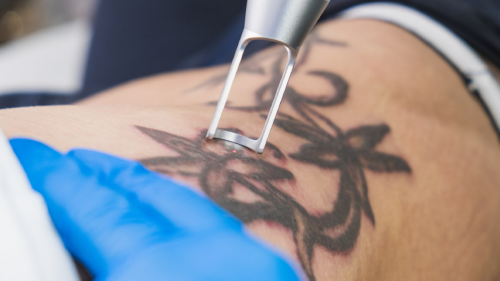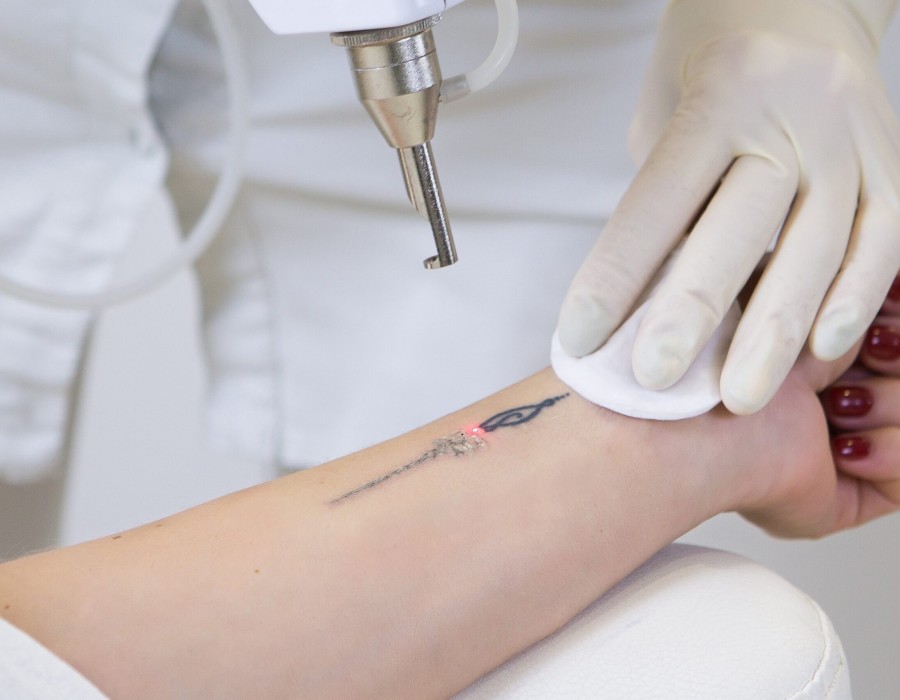Laser tattoo removal is a popular procedure for those looking to erase or modify their existing tattoos. The technique utilizes focused light beams to break down the ink particles in the skin, allowing the body to naturally eliminate them over time. Tattoo Removal Dubai method is favored for its precision and effectiveness compared to traditional removal methods.
The Procedure Explained
During the laser tattoo removal process, a professional uses a specialized laser to target the tattooed area. The laser emits short bursts of high-intensity light that penetrate the skin without damaging surrounding tissue. The ink absorbs the light energy, causing it to fragment into smaller particles. Over subsequent weeks, the body's immune system works to clear away these smaller particles, gradually fading the tattoo.
Suitable Candidate
Not everyone is an ideal candidate for laser tattoo removal. The best candidates are those with:
- Light Skin Tone: Individuals with lighter skin may experience better results, as the contrast between the skin and ink allows for more effective laser targeting.
- Darker Ink Colors: Black and dark blue inks respond best to laser removal, as they absorb the laser light more efficiently. Other colors may require different laser wavelengths for optimal results.
- Good Overall Health: Individuals in good health, without any underlying skin conditions, tend to heal better after the procedure.
Factors to Consider Before Proceeding
Before deciding on laser tattoo removal, it’s important to evaluate several factors:
- Tattoo Age and Size: Older tattoos may fade more easily than newer ones. Additionally, larger tattoos typically require more sessions for complete removal.
- Tattoo Location: Certain areas of the body may respond better to treatment than others. For instance, tattoos on the extremities may take longer to fade due to less blood circulation.
- Expectations: Understanding what to expect from the removal process is crucial. Complete removal may not always be possible, and results can vary based on several individual factors.

The Healing Process
After undergoing laser tattoo removal, the skin will undergo a healing process. Initially, the treated area may appear red or swollen, which is a normal reaction to the laser. Over the following weeks, the tattoo will gradually fade as the body clears the ink particles. Proper aftercare is essential to ensure optimal healing and minimize any risk of complications.
Multiple Sessions Required
Most individuals will require multiple sessions to achieve the desired results. The number of sessions depends on various factors, including the size, color, and age of the tattoo. A consultation with a professional can help determine an appropriate treatment plan tailored to the individual's needs.
Lifestyle Adjustments During Treatment
While undergoing laser tattoo removal, individuals may need to make some lifestyle adjustments to promote effective healing. This can include avoiding sun exposure on the treated area and refraining from activities that may irritate the skin. Staying hydrated and maintaining a balanced diet can also support the body's healing process.
Emotional Considerations
Deciding to remove a tattoo can be an emotional journey. Many individuals have personal reasons for wanting to erase a tattoo, whether it's due to changing life circumstances, a desire for a new start, or dissatisfaction with the original design. Engaging in open discussions about these feelings can be beneficial in the decision-making process.
Conclusion
Laser tattoo removal can be an effective solution for those looking to change or eliminate a tattoo. By understanding the procedure, evaluating individual suitability, and considering the emotional and lifestyle factors involved, one can make an informed decision. Consulting with professionals in Dubai can provide valuable insights and help guide individuals through this transformative process. Whether it's to reclaim one's skin or make way for new art, laser tattoo removal presents a viable option for many.






Comments